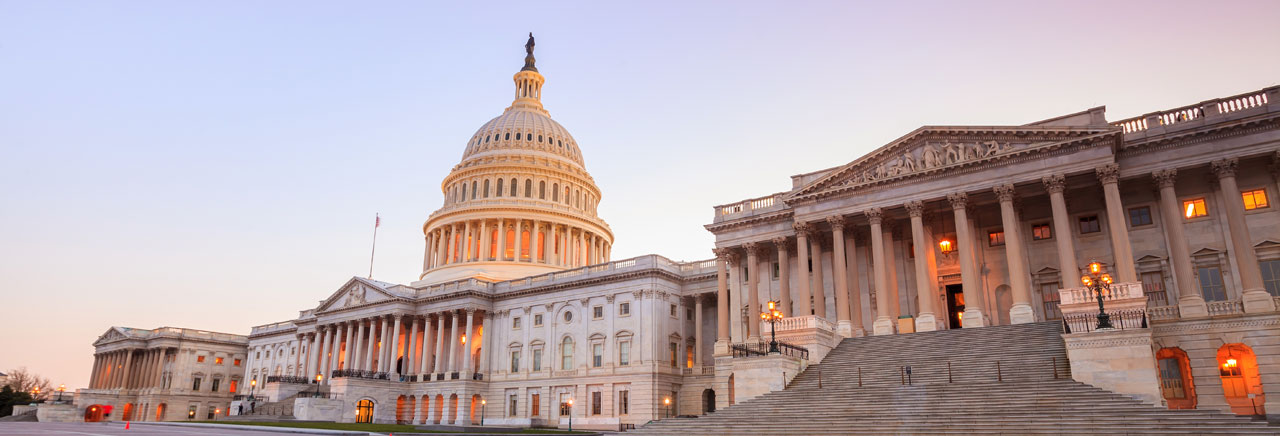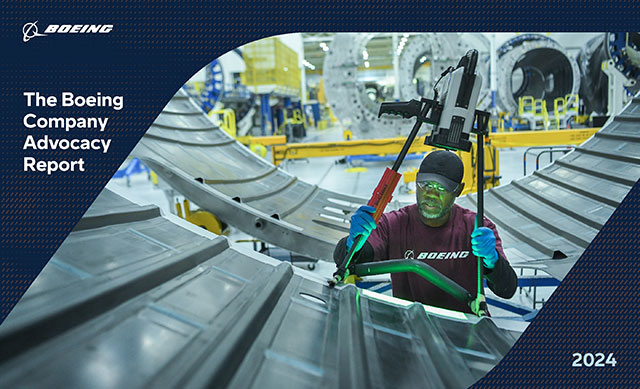Boeing Government Operations Overview
Boeing's Government Operations office is located in Arlington, Va., near Washington D.C., and serves the company in three ways:
- Protecting and advancing the company’s interests, competitiveness, and reputation;
- Winning support for Boeing programs; and
- Shaping public policy issues that impact the company.
The office works with public officials across all levels of government -- federal, state and local -- to carry out this mission. It also works with various third parties -- such as think tanks, trade associations, public policy groups, and international organizations. The Government Operations office strives to ensure the regulatory and political climate in the U.S. is conducive to global aerospace and defense leadership and supports long-term American manufacturing competitiveness and innovation. In addition to these many functions, the office serves as a point of contact between federal, state and local governments, plus associated third parties, and the company’s business units.
Boeing’s U.S. Footprint
Boeing’s market success plays a key role in supporting high-value aerospace jobs across its supply chain and across the United States. Boeing works with more than 12,000 businesses supporting more than 1 million supplier-related jobs across the United States. These businesses include production suppliers and non-production vendors, as well as subsidiaries of companies to which Boeing made other payments.
Our Advocacy
Read more about the Government Operations team’s work and Boeing’s policy priorities in our Advocacy Report.
Contact Us
The Boeing Company
929 Long Bridge Drive
Arlington, VA 22202-4208
Media relations: 703-465-3500

